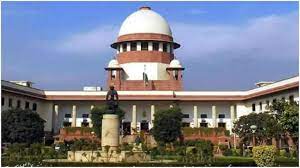Promising gifts in run-up to polls, not welfare, is the real ‘freebie’ issue
After considering the formation of an expert body to examine the issues relating to political parties promising free goods to voters in their election manifestoes, the Supreme Court has stayed its hand and referred the issue to a three-judge Bench. Also referred for deeper consideration is the correctness of an earlier judgment in S. Subramaniam Balaji vs Tamil Nadu (2013), which ruled that making promises in a manifesto would not amount to a corrupt practice. The proceedings before a Bench, headed by the now retired Chief Justice of India N.V. Ramana, last week, offered crucial perspectives on the political economy of welfarism, socialism and pre-election promises of ‘freebies’. Over the few hearings, the Bench moved from vague references to ‘freebies’ to making rational distinctions between welfare schemes and socio-economic concessions on the one hand, and poll-time announcements of material goods and items as incentives to vote. This clarity itself was lacking in the initial stages, as omnibus references to ‘freebies’ and raillery against political parties for their approach to welfare dominated the discourse. Those who have approached the Court against irrational promises found support from the Union government. Following Prime Minister Narendra Modi making public comments disapproving of the ‘freebie’ culture, the Government’s stand is no surprise.
However, the Government was reluctant to examine the issue through discussions among political parties and favoured a judicially appointed panel. But, such a panel may not achieve much. Most parties oppose any fetters on their right to appeal to voters through means of their choice and, if elected, use their mandate to distribute finances and resources as they deem fit, subject to law and legislative approval. Therefore, it is no surprise that the Bench has included in its reference, questions on the scope of judicial intervention in the matter and whether any enforceable order can be passed. The two-judge Bench judgment in 2013 had examined the issue in the backdrop of the DMK coming to power in 2006 on a promise to distribute television sets to the poor and implementing it. It ruled that the Directive Principles of State Policy allow such schemes and that spending of public funds on them could not be questioned if it was based on appropriations passed by the legislature. It also concluded that poll promises by a party could not be termed a ‘corrupt practice’. That Bench had also rejected the argument that giving benefits to everyone, that is, the poor and the well-off, would violate the equality norm in Article 14. When it came to state largesse, it said, the rule against treating unequals as equals would not be applicable. Does this amount to implying that the Directive Principles can override fundamental rights, as the petitioners have argued? This too awaits examination.
